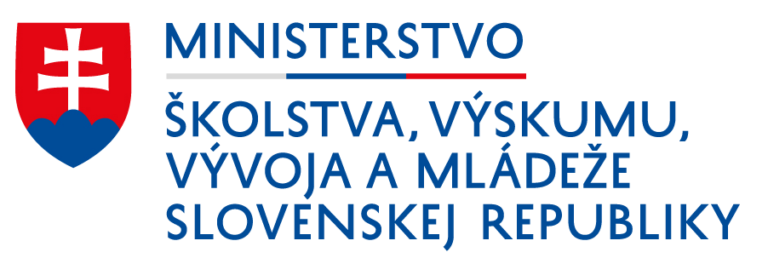Dual education
Dual education is the combination of knowledge with skills and practical knowledge. As a result, pupils in vocational secondary schools with an apprenticeship contract gain assets before they enter adulthood and the labour market that increase their chances of personal success. Chances to work in the field they have pursued during their studies. On the other hand, however, those who create and offer employment opportunities must be seen as the other side. That is, employers, investors, companies. Their most valuable element is quality people.
Today, the quality of employees is something of a handicap on the road to prosperity. Effective and efficient cooperation between secondary vocational schools and employers means teaching for employment, by aligning teaching in schools with the needs of employers. Therefore, the dual education system is a step towards success and a challenge to remove the current handicap. This must be considered to be the unemployment of young people due to the mismatch between their educational attainment and what employers need.
Strengths of dual education Highly skilled workforce, smooth transition from education to the labour market. Gaining qualifications and experience directly with the employer. Learning work habits directly in the production process with the employer. Training on new technologies directly with the employer. Employers' responsibility for the practical part of vocational training. Employers' influence on the content of vocational training. Relevance of vocational training programmes and their content, flexibility in their adaptation. Verification of graduate's knowledge and skills by the employer at graduation. The pupil's choice of occupation and the employer who will provide practical training. Selection of the pupil for dual training directly by the employer and admission of the pupil to the school with the consent of the employer. Supervision of the dual education system by employers' associations. Financial and material provision of the pupil by the employer. Close cooperation between the enterprise, the school and the pupil. Practically targeted curricula for individual disciplines. Development of occupations linked to market needs. High probability of obtaining a work contract with the employer.
The dual education system is unique in that it creates a partnership relationship between the employer and the apprentice, which is defined in the form of an apprenticeship contract that regulates the rights and obligations of the parties in relation to the apprentice's practical training with the employer at the practical training workplace. Another important aspect of the dual education system is the relationship between the employer and the school, concluded on a contractual basis in the form of a dual education contract, which regulates in particular the scope, conditions and coordination of the pupil's vocational training with the apprenticeship contract, i.e. the coordination of the pupil's theoretical and practical training. The employer is responsible for the entire practical training and bears all the costs associated with its implementation. Practical training in the dual training system is carried out at the employer's practical training site. A workplace for practical training shall be considered to be an organisational part of the employer or other premises to which the employer has ownership or use rights and where the employer has also been issued with a certificate of the employer's competence to provide practical training in the dual training system (hereinafter referred to as the certificate). The certificate shall be issued on the basis of an application by the employer by the relevant trade or professional organisation with subject-matter competence in the field of study in which the employer provides practical training. The certificate entitles the employer to provide practical training to pupils with whom the employer concludes a teaching contract pursuant to Section 19 of Act No. 61/2015 Coll. on Vocational Education and Training and on Amendments and Additions to Certain Acts on the basis of contractual cooperation with a selected vocational secondary school in the form of a dual education contract pursuant to Section 16 of Act No. 61/2015 Coll. on Vocational Education and Training and on Amendments and Additions to Certain Acts. Background for pupils The employer's capacity to provide practical training in a field of study or apprenticeship in the dual education system means, in particular, the material, technical, professional and personnel readiness to provide practical training in accordance with the School Act and the Act on Vocational Education and Training and on Amendments and Additions to Certain Acts. It also means ensuring that pupils are prepared for a vocation in accordance with the national curriculum, the model curricula and the model curricula for the dual education system. If required by the nature of the occupation or professional activities for which the pupil with an apprenticeship contract is being prepared, vocational training, professional practice or artistic practice may also be temporarily carried out at another place of productive work designated by the employer (servicing or assembly at a customer's premises, provision of services to a customer, etc., where the employer complies with the conditions for practical training in accordance with the legislation in force. The practical training of the pupil with the employer is carried out in the form of vocational training or work experience, which is organised as a vocational subject of practical training according to the model curricula and the model curricula for the dual education system. Vocational training shall be carried out under the guidance of a vocational master or instructor. Vocational practice shall be organised as a vocational subject of the field of study and shall be carried out under the guidance of a vocational practice teacher or instructor. Practical instruction of pupils in the form of vocational training shall be carried out in the fields of study in which the pupil obtains a certificate of education. Vocational practice shall be carried out in subjects in which the pupil obtains only a matriculation certificate.
Opportunities for dual education
Increase in employment of graduates of secondary schools.
An opportunity for young people to get quality vocational training.
Improving the level of professional competence and work ethic of school leavers.
Real work, social situations and the adoption of a "company culture".
Selecting suitable graduates and employing them for the company's own needs.
Creating training programmes according to the requirements and needs of employers.
Posilnenie spoločenského statusu a atraktivity technických povolaní – status „poctivého remesla“.
Completion and strengthening of trade union and professional organisations and vocational education and training centres.
Unification of the content and difficulty of qualification examinations, qualification levels.
The interest of the state and the willingness of foreign chambers to support the development of dual education with their own experience.
Increasing the competitiveness of businesses and Slovakia.
Through good examples, progressively involve more employers in vocational education and training through the dual education system.
Possibility of EU structural funds to finance the transition to a dual system
Increase funding to education (as a proportion of GDP) through employer input into VET funding.
Employers' input into raising the professional level of vocational subject teachers and master trainers.
This dual education system ensures that the education and training of the pupil for a career fully meets the requirements of the employer.
For more information, please visit www.dualnysystem.sk

